Integrate Salesforce with Magento 2 use Webhook
Salesforce is the leading customer relationship management (CRM) cloud-based software in the world. By providing CRM applications for sales and customers management, Salesforce offers optimal sales customer management solutions for businesses. It has high security and reliability, so it is extremely appropriate for small and medium enterprises. In an effort to help the business grow successfully, Mageplaza develops Webhook extension which allows Salesforce integrates with Magento 2 easily.
What Is Webhook?
Webhook is a helpful tool which allows online stores to configure to send an API request to a configurable destination (URL) such as other servers or applications in cases trigger events including new order, customer login, abandoned carts, etc occur. As a result, store owners can instantly update important notifications and have suitable activities shortly.
Table Of Content
- What Is Webhook?
- About Salesforce
- How To Integrate Salesforce With Magento 2 With Webhook
- The Result Shown In Salesforce
- These Available Body Templates
- Conclusion
Webhook supports these below entities of Magento:
- Customer
- Order
- Invoice
- Shipment
- Credit Memo
- Product
- Category
- Abandoned Cart
These entities of Salesforce:
- Accounts
- Contacts
- Events
- Asset
- Campaign
How To Integrate Salesforce With Magento 2 With Webhook
Instructions For Registering And Using Salesforce
Access to here, click the Sign up for free button to register a new Salesforce account > Fill out the registration form completely:
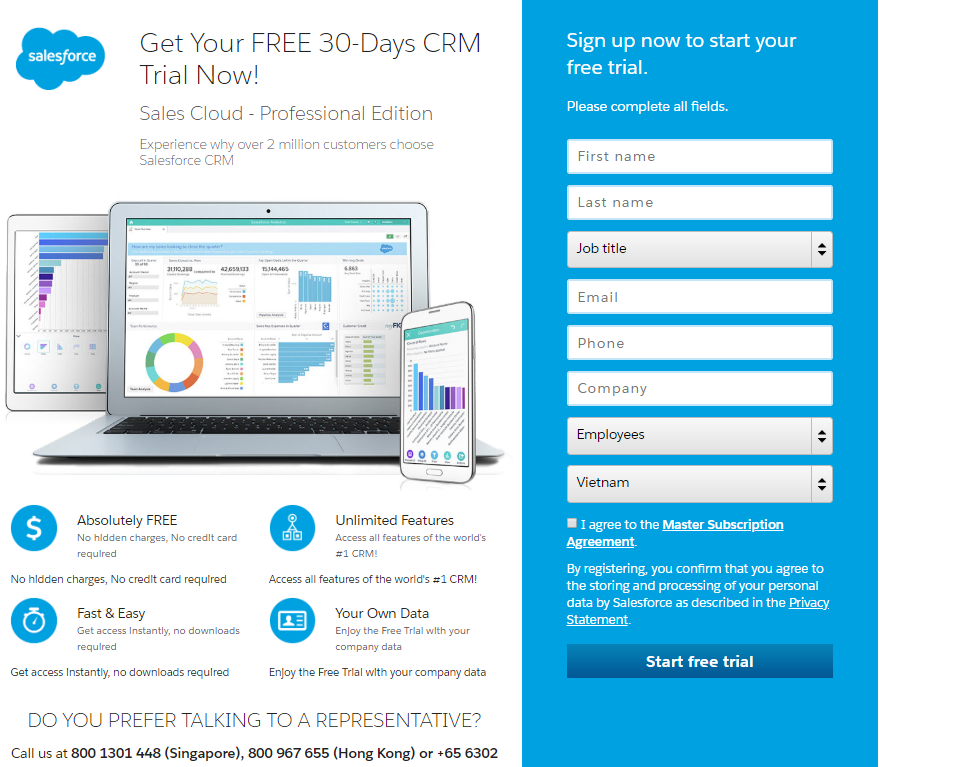
After sign up successfully, access to https://workbench.developerforce.com:
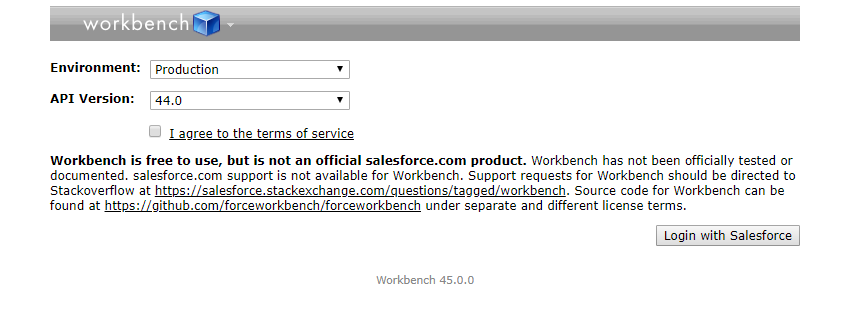
- Environment: Production
- API Version: choose API Version you want, click the below checkbox
- Click Login with Salesforce button to log in Workbench by using your registered Salesforce account.
After Login in Workbench successfylly, please click utilities > Apex Execute > Enter the command: System.debug(UserInfo.getOrganizationId()+’‘+UserInfo.getSessionId().SubString(15)); > Click the Execute button to get Session ID.
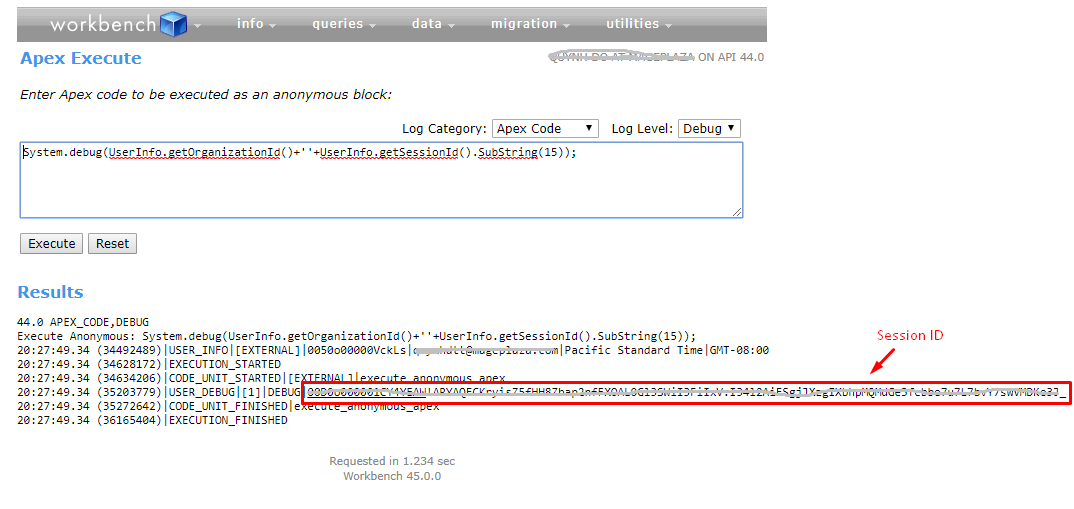
These Fields Of Salesforce
To view the latest fields of Salesforce, you can click here
Instructions For Creating Hook
How to create a new account in Salesforce via Magento 2
Required fields:
- Name
Optional fields:
- Fax
- Type
- Phone
- Jigsaw
- OwnerId
- SicDesc
- Website
- Industry
- ParentId
- BillingCity
- Description
- BillingState
- ShippingCity
- AccountSource
- AnnualRevenue
- BillingStreet
- ShippingState
- BillingCountry
- ShippingStreet
- BillingLatitude
- ShippingCountry
- BillingLongitude
- ShippingLatitude
- BillingPostalCode
- NumberOfEmployees
- ShippingLongitude
- ShippingPostalCode
- BillingGeocodeAccuracy
- ShippingGeocodeAccuracy
In this part, I will give detail instructions on how to configure Webhook which helps Magento 2 integrate with HubSpot.
From the Admin Panel, go to System > Webhook > Manage Hooks, select Add New on the right corner, then you will see many options including New Order, New Customer, Update Customer, Delete Customer, etc.
Step 1: Fill all information in the General Information tab
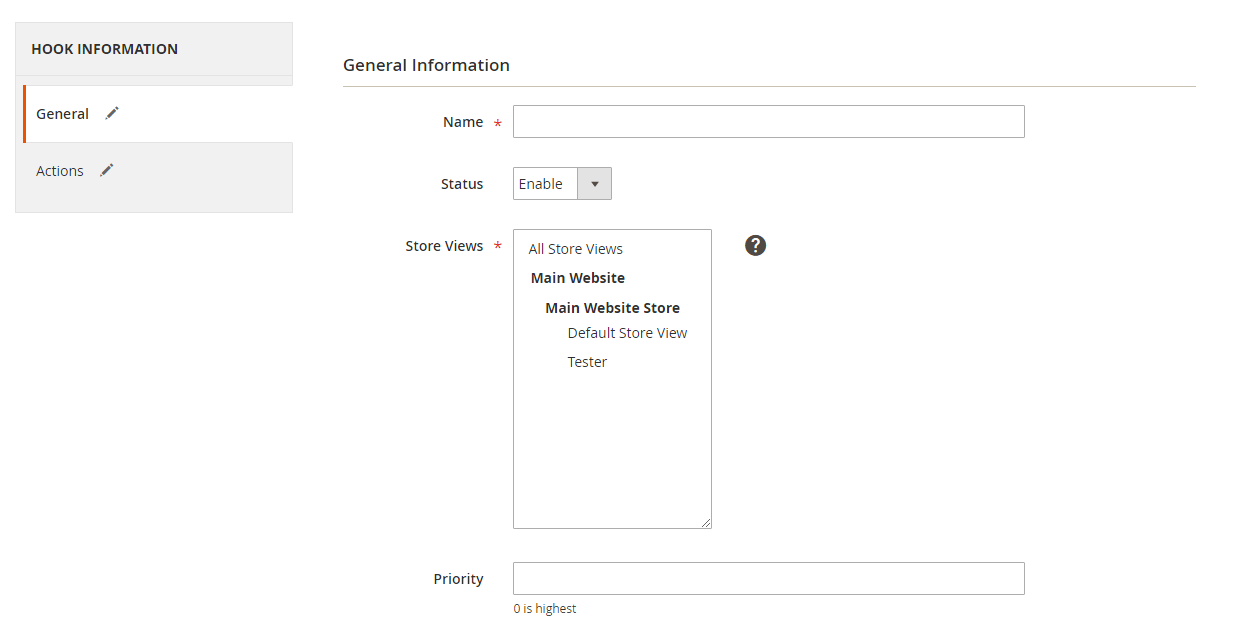
Step 2: Enter the data on the Action tab
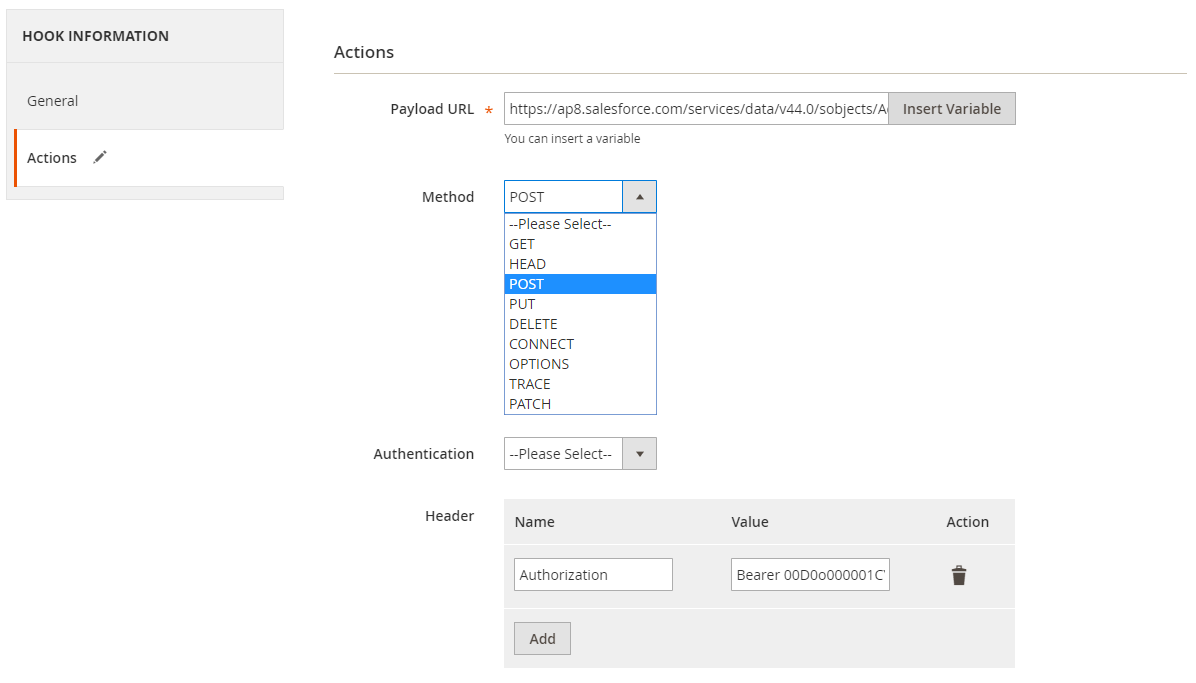
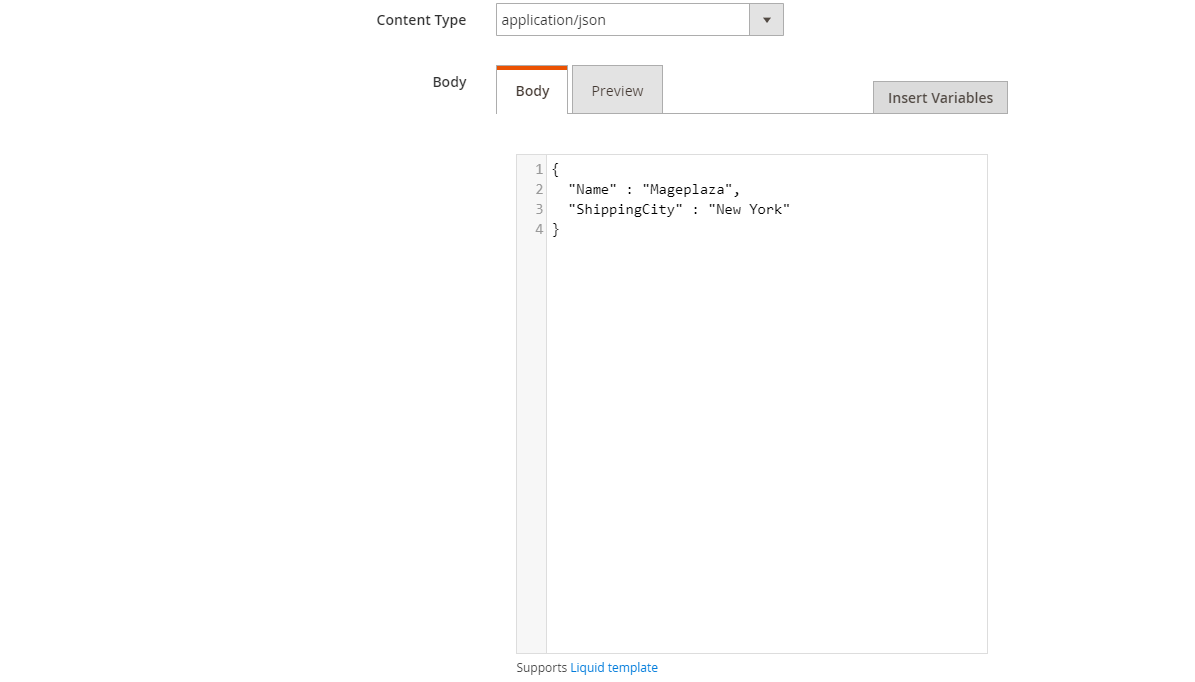
Notes:
Payload URL:
- End point: /services/data/vx.y/sobjects/Account, with vx.y is your API Version which is installed Workbench.
Headers: Click the Add button to add the value of headers such as Name and Value according to requests of servers, in order to call this API.
- Name: Authorization, Value: Bearer Session ID, with Session ID is Session ID which you already found.
- For example:

Body: With POST or PUT method, you need to add content on the Content section to send the request. Click the Insert Variable button to choose variable.
- With the customer of Magento and POST method, you need to insert the below content into Body section:
{
"Name" : "Alata",
"ShippingCity" : "New York",
}
Note: If you want to get any data field, you need to change the value of this data field with variable coming from Insert Variable.
The results of creating a hook:

Once some events in Store such as adding new customer, new order, etc occurs, the data will be saved on Hook Logs:

Click Select > View to redirect to View log page, in order to view the data information:
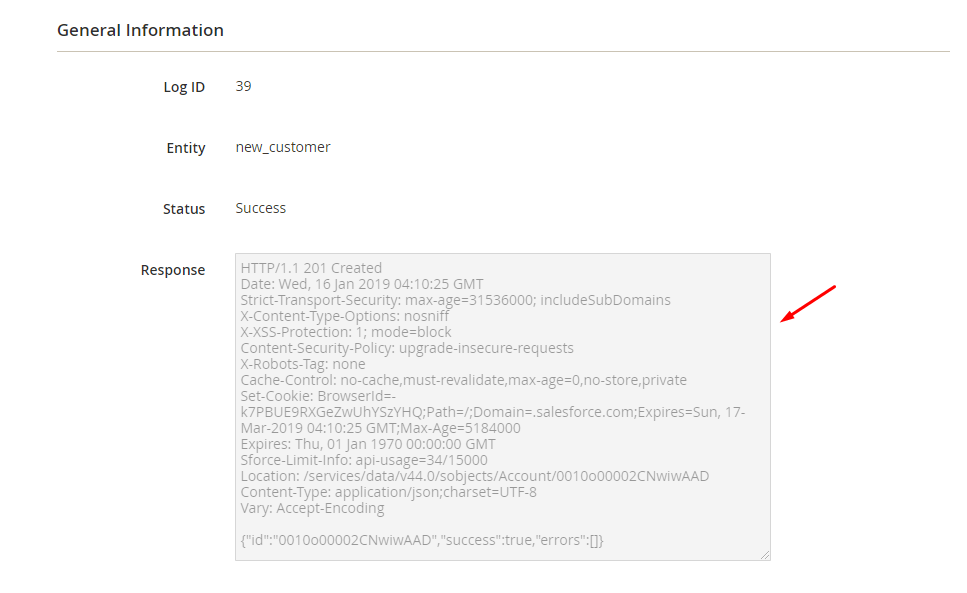
The Result Shown In Salesforce:
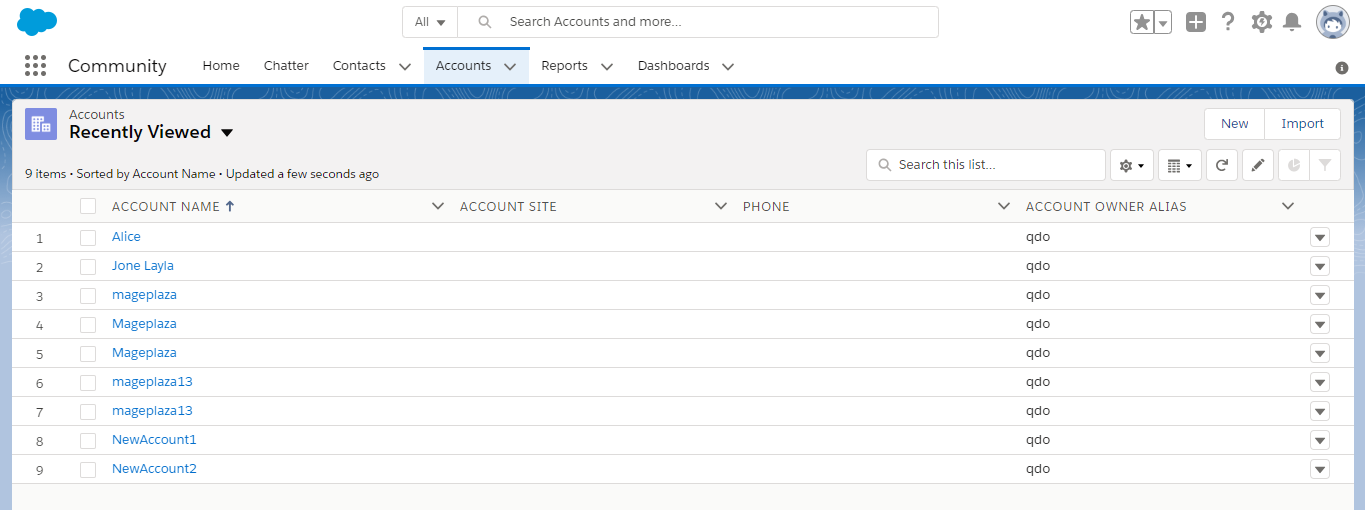
These Available Body Templates
New Contact:
Endpoints URL
- POST: /services/data/vx.y/sobjects/Contact
Required fields:
- LastName
Optional fields:
- Fax
- Phone
- Title
- Jigsaw
- OwnerId
- AccountId
- Birthdate
- FirstName
- HomePhone
- OtherCity
- Department
- LeadSource
- OtherPhone
- OtherState
- Salutation
- Description
- MailingCity
- MobilePhone
- OtherStreet
- ReportsToId
- MailingState
- OtherCountry
- AssistantName
- MailingStreet
- OtherLatitude
- AssistantPhone
- MailingCountry
- OtherLongitude
- MailingLatitude
- OtherPostalCode
- EmailBouncedDate
- MailingLongitude
- MailingPostalCode
- EmailBouncedReason
- OtherGeocodeAccuracy
- MailingGeocodeAccuracy
Body Template:
{
“LastName” : “Sam”,
“FirstName” : “Mageplaza”,
“Email” : “mageplaza@gmail.com”
}
Note: If you want to get any data field, you need to change the value of this data field with variable coming from Insert Variable.
Conclusion
In this tutorial, we introduce how to register Salesforce, create Hook with Mageplaza Webhook Extension to integrate Salesforce with Magento 2. In addition, you can refer to other useful extensions for your store here.
Explore Mageplaza Webhook for Mageplaza 2 now!
Back Ask Mageplaza